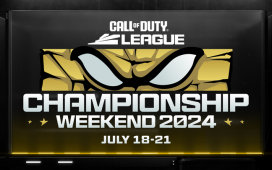Mentioned in this article
Golden Guardians, the League of Legends affiliate team of NBA franchise Golden State Warriors (GSW), has partnered with esports analytics company Mobalytics.
Mobalytics will provide League of Legends game data as it relates to Golden Guardians team members and potential recruits, as well as the competition. This will allow Golden Guardians to formulate strategies, improve gameplay, and evaluate the value of players during the scouting process.
Data is a growing market for the esports industry as teams look for a competitive edge. Team Liquid partnered with SAP in 2018 to develop software based on game-derived data, helping the team to analyze player performance and scout new talent in Dota 2.
Similarly, Cloud9 uses Microsoft’s cloud-based Azure platform to mine data from games and provide actionable insights for players and teams.
League of Legends is an especially challenging game to analyze because it contains so many variables from play style to different combinations of the 140+ champions available, and all of that can change with a single game patch.
Partnering with Mobalytics allows the team to better understand and act on this information, Golden Guardians General Manager Danan Flander told The Esports Observer.
“[For example, we could] perform a deep dive on Henrik “Froggen” Hansen, who is a once-in-a-generation talent with a super niche style of play,” said Flander. “It’s really hard for people to characterize or fully understand what he does differently that gives him the edge over everyone else. But surprisingly enough when we lean on Mobalytics, it’s pretty clear to them.”
The team is also using this information as they navigate Riot’s scouting grounds initiative.
Amine Issa, Mobalytics co-founder and warchief of science, says that the demand for data has increased tremendously as more sports owners come into the landscape.
“[Sports owners] are used to very advanced data formations within their teams,” Issa explained. “I think the biggest mistake people make talking about data is that they focus on [buzz words like] ‘Big Data’, ‘AI,’ etc. You need to focus on the interpretation of the data.
“If you don’t have a deep understanding of what it is you are looking for and what it is you want to achieve, you’ll just get lost in the data and come to erroneous conclusions that lead you down the wrong path.”
Flander compares Golden Warriors’ relationship with Mobalytics to broadcast partners gathering statistical insights.
“It’s not as simple as them grabbing numbers, crunching them, and sending them back,” said Flander. “It’s more of a formal conversation with a whole division of your company. It feels very much like Mobalytics is just another section of who we are. We can lean on it in the same way that a broadcast team would lean on their stats and analytics division to find useful things for our talent to utilize.”
In today’s esports landscape, Flander calls data analytics “insanely important” and a natural evolution of the industry. It wasn’t long ago, he recalls, that having a coach in League of Legends was unheard of.
“I’m a firm believer in the capacity of the League of Legends Championship Series (LCS) to scale to the likes of the NFL and the NBA,” he said. “The way you do that is for all the teams to do their jobs better and raise the bar. Working with a group like Mobalytics is exactly that.”
This interview was conducted by Trent Murray.













